第14章 PLOUGHING THE SEA(1)
When the La Plata Congress at Tucuman took the decisive action that severed the bond with Spain, it uttered a prophecy for all Spanish America. To quote its language: "Vast and fertile regions, climates benign and varied, abundant means of subsistence, treasures of gold and silver . . . and fine productions of every sort will attract to our continent innumerable thousands of immigrants, to whom we shall open a safe place of refuge and extend a beneficent protection." More hopeful still were the words of a spokesman for another independent country: "United, neither the empire of the Assyrians, the Medes or the Persians, the Macedonian or the Roman Empire, can ever be compared with this colossal republic."Very different was the vision of Bolivar. While a refugee in Jamaica he wrote: "We are a little human species; we possess a world apart . . . new in almost all the arts and sciences, and yet old, after a fashion, in the uses of civil society. . . .
Neither Indians nor Europeans, we are a species that lies midway . . . . Is it conceivable that a people recently freed of its chains can launch itself into the sphere of liberty without shattering its wings, like Icarus, and plunging into the abyss?
Such a prodigy is inconceivable, never beheld." Toward the close of his career he declared: "The majority are mestizos, mulattoes, Indians, and negroes. An ignorant people is a blunt instrument for its own destruction. To it liberty means license, patriotism means disloyalty, and justice means vengeance." "Independence,"he exclaimed, "is the only good we have achieved, at the cost of everything else."Whether the abounding confidence of the prophecy or the anxious doubt of the vision would come true, only the future could tell.
In 1822, at all events, optimism was the watchword and the total exclusion of Spain from South America the goal of Bolivar and his lieutenants, as they started southward to complete the work of emancipation which had been begun by San Martin.
The patriots of Peru, indeed, had fallen into straits so desperate that an appeal to the Liberator offered the only hope of salvation. While the royalists under their able and vigilant leader, Jose Canterac, continued to strengthen their grasp upon the interior of the country and to uphold the power of the viceroy, the President chosen by the Congress had been driven by the enemy from Lima. A number of the legislators in wrath thereupon declared the President deposed. Not to be outdone, that functionary on his part declared the Congress dissolved. The malcontents immediately proceeded to elect a new chief magistrate, thus bringing two Presidents into the field and inaugurating a spectacle destined to become all too common in the subsequent annals of Spanish America.
When Bolivar arrived at Callao, the seaport of Lima, in September, 1823, he acted with prompt vigor. He expelled one President, converted the other into a passive instrument of his will, declined to promulgate a constitution that the Congress had prepared, and, after obtaining from that body an appointment to supreme command, dissolved the Congress without further ado.
Unfortunately none of these radical measures had any perceptible effect upon the military situation. Though Bolivar gathered together an army made up of Colombians, Peruvians, and remnants of San Martin's force, many months elapsed before he could venture upon a serious campaign. Then events in Spain played into his hands. The reaction that had followed the restoration of Ferdinand VII to absolute power crossed the ocean and split the royalists into opposing factions. Quick to seize the chance thus afforded, Bolivar marched over the Andes to the plain of Junin.
There, on August 6, 1824, he repelled an onslaught by Canterac and drove that leader back in headlong flight. Believing, however, that the position he held was too perilous to risk an offensive, he entrusted the military command to Sucre and returned to headquarters.
The royalists had now come to realize that only a supreme effort could save them. They must overwhelm Sucre before reinforcements could reach him, and to this end an army of upwards of ten thousand was assembled. On the 9th of December it encountered Sucre and his six thousand soldiers in the valley of Ayacucho, or "Corner of Death," where the patriot general had entrenched his army with admirable skill. The result was a total defeat for the royalists--the Waterloo of Spain in South America. The battle thus won by ragged and hungry soldiers--whose countersign the night before had been "bread and cheese"--threw off the yoke of the mother country forever. The viceroy fell wounded into their hands and Canterac surrendered. On receipt of the glorious news, the people of Lima greeted Bolivar with wild enthusiasm. ACongress prolonged his dictatorship amid adulations that bordered on the grotesque.